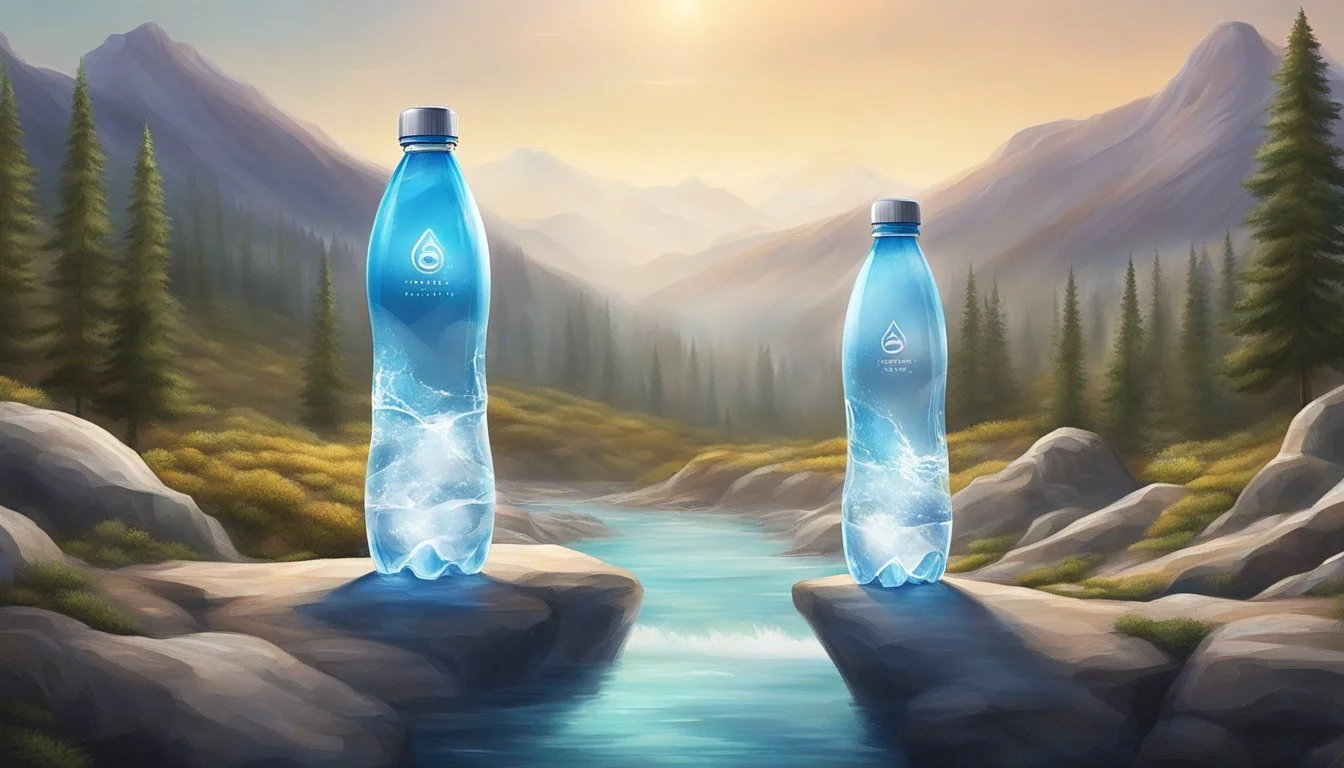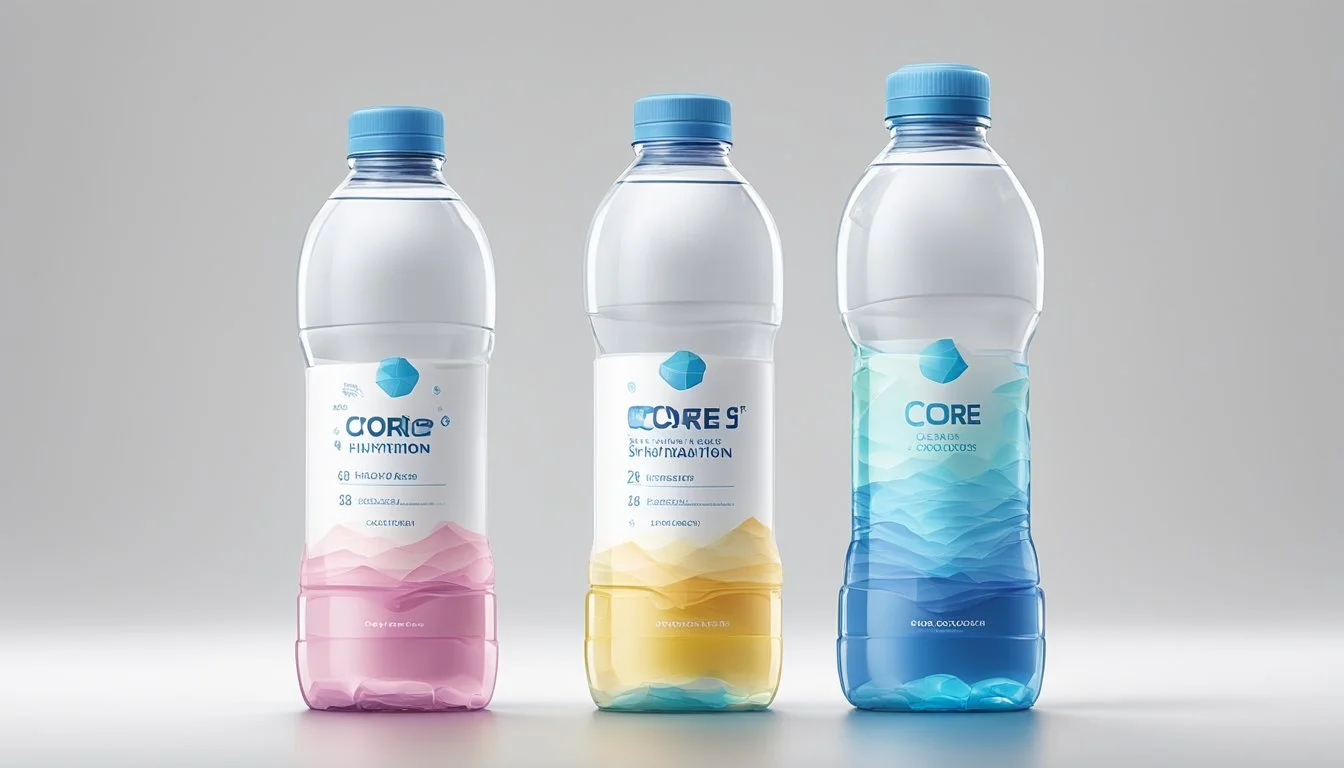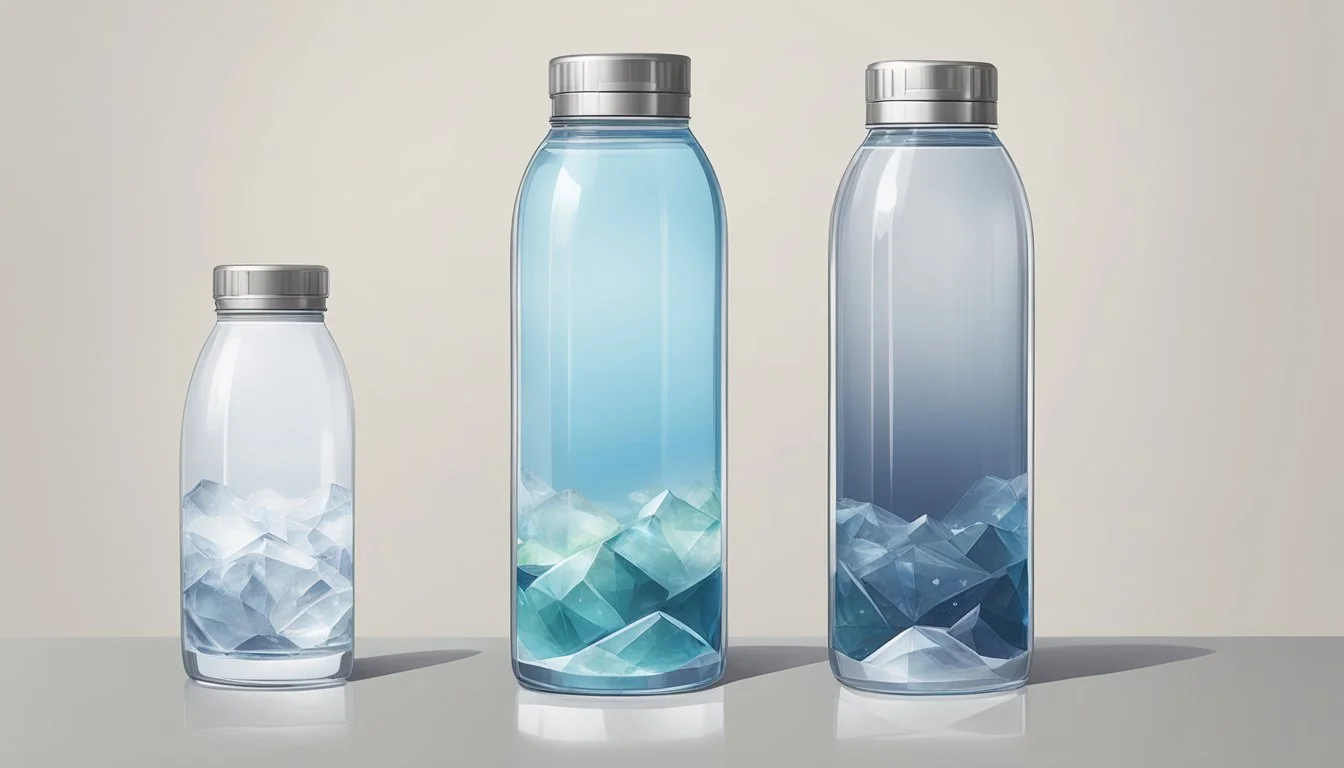Core Hydration vs. Crystal Geyser
A Comparative Analysis of Bottled Water Quality
When it comes to selecting bottled water, many people find themselves comparing brands like Core Hydration and Crystal Geyser. These two popular options cater to different needs and preferences, making the choice a matter of personal taste and priorities. Core Hydration is known for its ergonomic design and the added benefits of electrolytes and minerals, giving it a sports-drink-like quality that sets it apart from other options on the market.
Crystal Geyser, on the other hand, is often praised for its simplicity and reliability, though it might not be the first choice for those looking for something extraordinary. While Core Hydration aims to offer a balanced and enhanced hydration experience, Crystal Geyser sticks to the basics, providing a dependable taste profile that appeals to many. These characteristics make Crystal Geyser a solid, if not standout, choice for daily hydration.
By comparing these aspects, consumers can better understand which brand suits their lifestyle and hydration needs. For some, the added minerals and ergonomics of Core Hydration might make it the preferable choice, while others might prefer the straightforward, classic taste of Crystal Geyser.
Overview of Bottled Water Industry
The bottled water industry has seen rapid growth, driven by demand for health-conscious options and convenience. This section explores key market leaders and the environmental impact of this expanding market.
Market Leaders and Brands
The bottled water market is dominated by global brands such as Nestlé Waters, Danone, PepsiCo, and Coca-Cola. Each of these companies offers a range of bottled water options, including still, sparkling, flavored, and enhanced varieties.
Nestlé, for instance, owns brands like Pure Life and Perrier. Danone is known for Evian and Volvic. PepsiCo's Aquafina and Coca-Cola's Dasani are significant competitors in the market. The majority of these brands focus on premium quality and health benefits, attracting a wide consumer base.
Environmental Impact
The environmental impact of bottled water is a critical issue. Plastic waste, largely from single-use bottles, contributes significantly to pollution. Efforts to address this include the use of eco-friendly packaging and recycled materials.
Many companies are working toward sustainability, with initiatives to reduce their carbon footprint. For instance, Nestlé Waters aims to achieve 100% recyclable or reusable packaging by 2025. The International Bottled Water Association also promotes standards for reducing environmental impact within the industry through responsible water management and efficient manufacturing processes.
Comparing Core Hydration and Crystal Geyser
Core Hydration and Crystal Geyser offer distinct features that set them apart in terms of origin, flavor, and safety standards. Below, each aspect is explored to help you decide which might better suit your preferences.
Origin and Water Source Analysis
Core Hydration sources its water from purified sources, often using a rigorous purification process that includes reverse osmosis. It's designed to have an optimal pH balance of 7.4. The added minerals and electrolytes aim to mirror the body's natural levels.
Crystal Geyser, on the other hand, prides itself on sourcing water directly from natural springs. Locations such as Olancha, California, guarantee that the water is bottled at a nearby plant, preserving its natural taste. This spring water promises a more authentic experience, free from extensive purification processes.
Taste Profile and Preferences
The taste of Core Hydration is marketed as smooth and clean, thanks to its balanced pH and added electrolytes. This makes it appealing to those who prefer a crisp and subtly enhanced flavor.
Crystal Geyser offers a more straightforward, natural taste, often described as refreshing and pure. Because the water is bottled at the source and undergoes minimal processing, it retains a flavor many associate with untouched spring water. Some find it less "processed" tasting compared to its rival.
Health and Safety Standards
When it comes to safety, Core Hydration uses advanced purification technologies and ensures all water is free from harmful contaminants. Regular quality checks and strict adherence to health guidelines are integral parts of their process.
Crystal Geyser adheres to stringent safety standards as well, emphasizing the purity of its natural springs. Although largely untreated, the water undergoes essential filtration to remove impurities, ensuring it meets federal and state safety standards. Consistent testing and transparent reporting guarantee it provides safe drinking water.
Both brands exhibit a commitment to safety, although they achieve it through different methodologies.
Nutritional Analysis
When comparing Core Hydration and Crystal Geyser, examining their nutritional content is essential. Significant differences lie in their mineral content and the efficiency of hydration they provide.
Mineral Content and Health Benefits
Crystal Geyser is known for its natural source, coming from springs. It typically contains calcium, magnesium, and potassium in moderate amounts, all of which are essential minerals that contribute to healthier bone density, muscle function, and cardiovascular health.
Core Hydration advertises its tailored mineral profile, which aims to deliver an optimal pH balance. The brand claims a perfect pH of 7.4, which is considered neutral and beneficial for the body's overall alkalinity balance. By maintaining this careful balance, Core Hydration aims to support better bodily functions and offset the acid-forming foods that many consume.
Electrolytes and Hydration Efficiency
Electrolytes are crucial for effective hydration. Core Hydration includes electrolytes such as potassium and magnesium to enhance hydration efficiency. These electrolytes help maintain fluid balance, which is critical for bodily functions and athletic performance.
Crystal Geyser, on the other hand, does not specifically fortify their water with additional electrolytes. It relies on the natural electrolyte content derived from its spring sources. This makes it less specified for targeted hydration purposes compared to Core Hydration but still a healthy choice due to its natural mineral content.
Both brands provide different benefits depending on the specific hydration and mineral needs of the individual.
Product Packaging and Sustainability
Core Hydration and Crystal Geyser take different approaches when it comes to their packaging and sustainability efforts. Core Hydration focuses on eco-friendly packaging with a commitment to health-conscious consumers, while Crystal Geyser offers traditional options.
Materials and Environmental Considerations
Core Hydration employs 100% recyclable plastic bottles which are also BPA-free. This makes them a more environmentally friendly option compared to many competitors. The bottles feature a unique design that provides a comfortable grip. Core Hydration also integrates electrolytes for taste and claims to balance its water to a neutral pH that is in sync with the body's natural levels.
Crystal Geyser often uses plastic bottles as well, but the focus on sustainable practices is not as prominent. Unlike Core Hydration, Crystal Geyser has faced criticism for contaminants in their water, which might influence consumer perception. Nonetheless, their packaging is designed to be durable and dependable for everyday use.
Core Hydration Crystal Geyser Bottle Material 100% Recyclable Plastic Plastic BPA-Free Yes Not Specified Design Comfort Grip Standard Design Eco-Friendly Yes Limited Focus
Both brands strive to provide high-quality products, but Core Hydration's approach incorporates more eco-friendly packaging and a stronger focus on environmentally friendly practices.
Quality and Safety Reports
Core Hydration and Crystal Geyser are both highly visible bottled water brands, but their quality and safety profiles raise distinct considerations.
Regulations and Compliance
Core Hydration and Crystal Geyser must meet FDA regulations for bottled water quality. The FDA standards align with EPA standards for tap water. Each brand routinely conducts quality tests to ensure compliance.
Crystal Geyser has faced scrutiny over compliance issues and has been cited for not meeting certain state-level standards. Despite this, it has largely adhered to the federal guidelines.
Core Hydration's quality reports usually show that it adheres strictly to the required regulations. Additional electrolytes and minerals are added to Core Hydration, but these must comply with safety standards as well.
Contaminants and Public Health Implications
Consumer Reports indicate that Core Hydration generally lacks significant levels of harmful contaminants. However, added minerals and electrolytes may not be necessary for everyone and could interact with specific health conditions.
Crystal Geyser has had instances where lead and other heavy metals were found in batches, leading to public health concerns. Reports show that Crystal Geyser received a low score for purity, with specific issues related to potential contaminants like arsenic and PFAS chemicals.
Monitoring these contaminants is crucial, as they can pose risks to long-term health, particularly in vulnerable groups such as children and pregnant women. Public health authorities recommend staying informed about quality reports before choosing bottled water.
Consumer Insights
This section examines the nuances of consumer preferences and what drives their loyalty towards Core Hydration and Crystal Geyser. Both brands have unique qualities that influence consumer choices and market standing.
Preference and Popularity Trends
Consumers often choose Core Hydration for its crisp taste and balanced pH levels. Many appreciate its inclusion of electrolytes and minerals that enhance hydration.
By contrast, Crystal Geyser garners attention for its affordability and purity, sourced from natural springs. Taste tests often place Crystal Geyser in a middle tier, as noted by sources, indicating it's a dependable, if not premium, option.
Popularity for each brand can be influenced by the type of activity they are associated with. Core Hydration appears to appeal more to fitness enthusiasts, while Crystal Geyser is a go-to for general use.
Purchase Drivers and Brand Loyalty
Key drivers for purchasing Core Hydration include its marketing as a premium hydration solution with essential minerals. Its sleek, modern packaging also appeals to a younger, health-conscious demographic.
Crystal Geyser attracts those looking for practical, high-quality water at a lower price point. Its commitment to natural spring sources bolsters consumer trust and loyalty.
While Core Hydration often secures brand loyalty through its perceived health benefits and aesthetic appeal, Crystal Geyser retains customers through cost-effectiveness and consistent quality. Both brands thus build their consumer bases on distinct but impactful attributes.
Comparative Conclusion
Core Hydration and Crystal Geyser offer distinct advantages in taste, quality, and environmental impact. Each brand caters to different priorities of consumers, making the decision dependent on individual preferences.
Final Assessment
Taste and Quality: Core Hydration prides itself on a perfect pH balance of 7.4 and the inclusion of electrolytes to enhance taste, aligning closely with the body's natural pH. Crystal Geyser offers a more traditional taste, often described as passable but not exceptional. Although both waters are of high quality, Core Hydration's emphasis on a balanced, refreshing taste gives it an edge in this aspect.
Safety and Ingredients: Core Hydration bottles are BPA-free and 100% recyclable, ensuring no harmful chemicals seep into the water. Crystal Geyser, though safe, does not emphasize pH balance or added electrolytes, focusing instead on natural spring sources.
Environmental Impact: Core Hydration leads with its fully recyclable bottles made from BPA-free plastic. This makes it a favorable choice for environmentally conscious consumers. Crystal Geyser, while using natural sources, does not highlight similar environmental commitments in its packaging.
Bottom Line: Consumers seeking enhanced taste and optimal pH balance may prefer Core Hydration. On the other hand, those who prioritize natural spring water might lean towards Crystal Geyser. Each has its strengths, making selection dependent on personal priorities.




